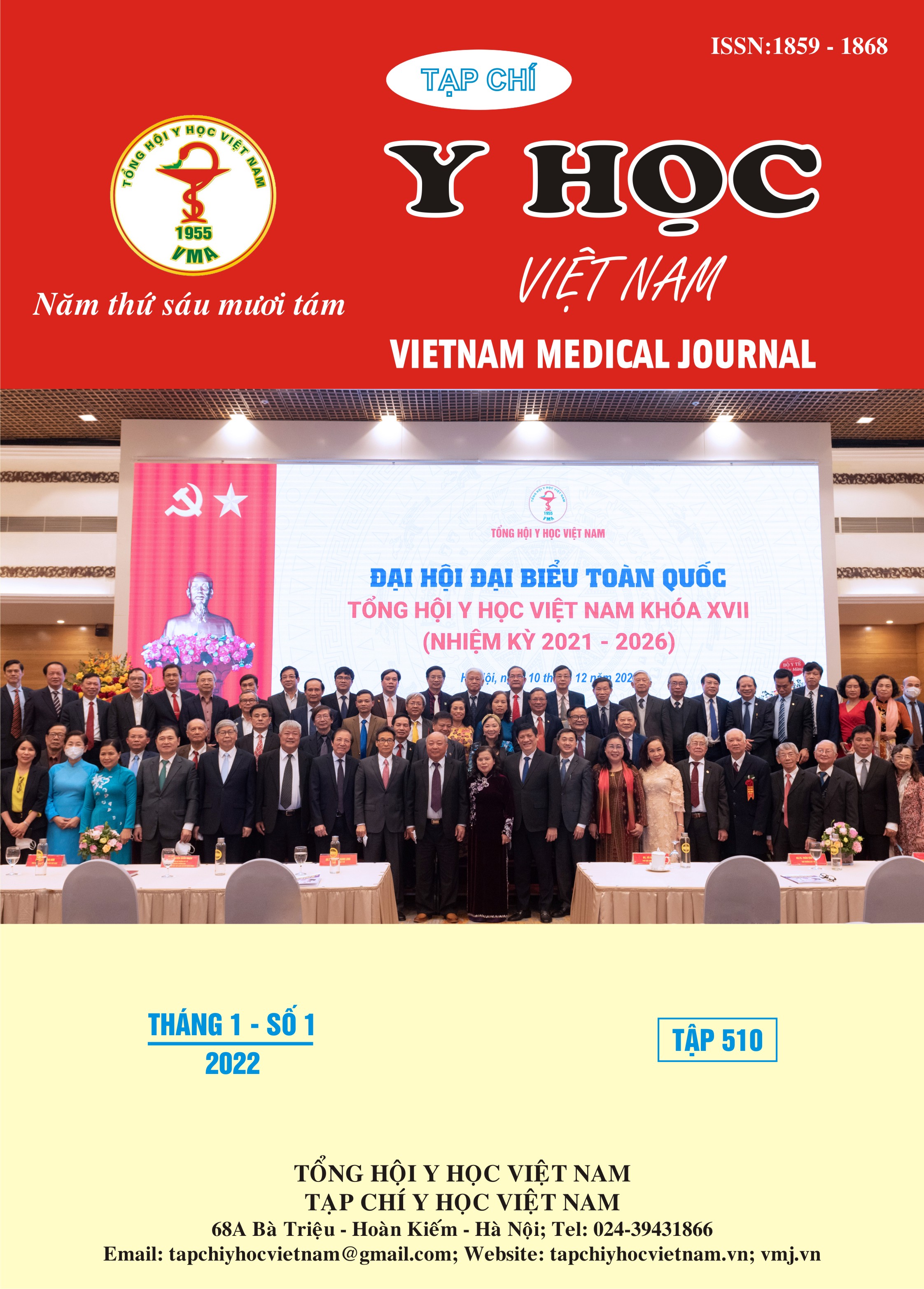THE RESULTS OF PREOPERATIVE CHEMO-RADIOTHERAPY TREATMENT FOR STAGE III RECTAL CANCER
Main Article Content
Abstract
Objectives: To evaluate the results of surgery treatment for stage III rectal cancer with preoperative chemo-radiotherapy with Cappecitabine at Central Military Hospital 108. Subjects and methods: Progressive and retrospective descriptive research on 73 patients with rectal cancer Stage III from December 2015 to March 2019 who have received preoperative chemoradiotherapy with 50.4Gy/Fx dose in 5.5 weeks with Capecitabine 825mg/m2, twice a day x 5-7 days/week and surgery. All of the patients underwent surgery after 4 to 12 weeks since finishing chemoradiotherapy. Evaluate the toxicity of chemoradiotherapy, clinical response, postoperative pathological anatomy response, sphincter preservation and postoperative complications. Results: Rate of clinical complete response is 75,3% (55/73), including 8.2% (6/73) of comprehensive response. In terms of postoperative anatomy, rate of patients with tumor (T) period reduction response is 54.79% (40/73), including 4.1% (3/73) of comprehensive response (pT0). All patients tolerated treatment well, no toxicity at level 4. Rectal inflammation caused by radiation at level 1-2 accounts for 27.4% (20/73) and at level 3 accounts for 1.3% with 1 case, dermatitis due to radiation at level 1- 2 accounts for 30.1% (22/73) , fatigue at level 1-2 accounts for 17.8% (13/73), urinary tract inflammation at level 1 accounts for 8.2% (6/73), weight loss accounts for 9.6% (7/73). Anal sphincter conservation surgery reaches 84.9% (62/73). Postoperative complications account for only 6.8% (5/73) of leakage. Conclusion: Stage III rectal cancer treatment results by preoperative chemo-radiotherapy with Capecitabine have achieved high rate of post-operative period reduction and increase the capability of anal sphincter conservation surgery.
Article Details
Keywords
Preoperative chemo-radiotherapy, rectal cancer
References
2. O’Connell M.J. et al (2005), “Update on design of the National Surgical Adjuvant Breast and Bowel Project trial R-04”, J Clin Oncol, 23:pp.933-934.
3. Camma C., Giunta M., Fiorica Fet al (2000), “Preoperative radiotherapy for resectable rectal cancer: A meta-analysis”, JAMA, 284:pp.1008-1015.
4. Sauer R., Becker H., Hohenberger Wet al (2004), “Preoperative versus postoperative chemoradiotherapy for rectal cancer”, N Engl J Med, 351:pp.1731-1740.
5. Twelves C. (2002), “Xeloda Colorectal Cancer Group. Capecitabine as first-line treatment in colorectal cancer: Pooled data from two large, phase III trials”, Eur J Cancer, 38(2):pp.15-20.
6. Dupuis O., Vie B., Lledo Get al (2004), “Capecitabine chemoradiation in the preoperative treatment of patients with rectal adenocarcinomas: a phase II GERCOR trial”, Proc Am Soc Clin Oncol, 23:pp.255.
7. Gambacorta M.A., Valentini V., Morganti A.G. et al (2004), “Chemoradiation with raltitrexed and oxaliplatin in preoperative treatment of stage II-III resectable rectal cancer: Phase I and II studies”, Int J Radiat Oncol Biol Phys, 60:pp.139-148.
8. Phạm Cẩm Phương (2013), “Đánh giá hiệu quả của xạ trị kết hợp Capecitabine trước mổ trong ung thư trực tràng thấp tiến triển tại chỗ”. Luận án tiến sỹ Y khoa, Đại học Y Hà Nội.


